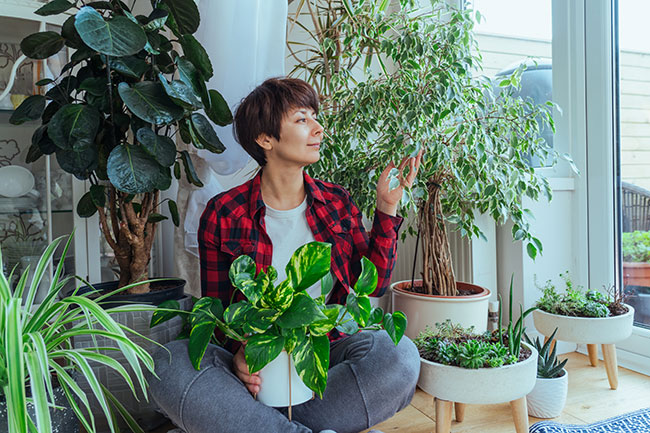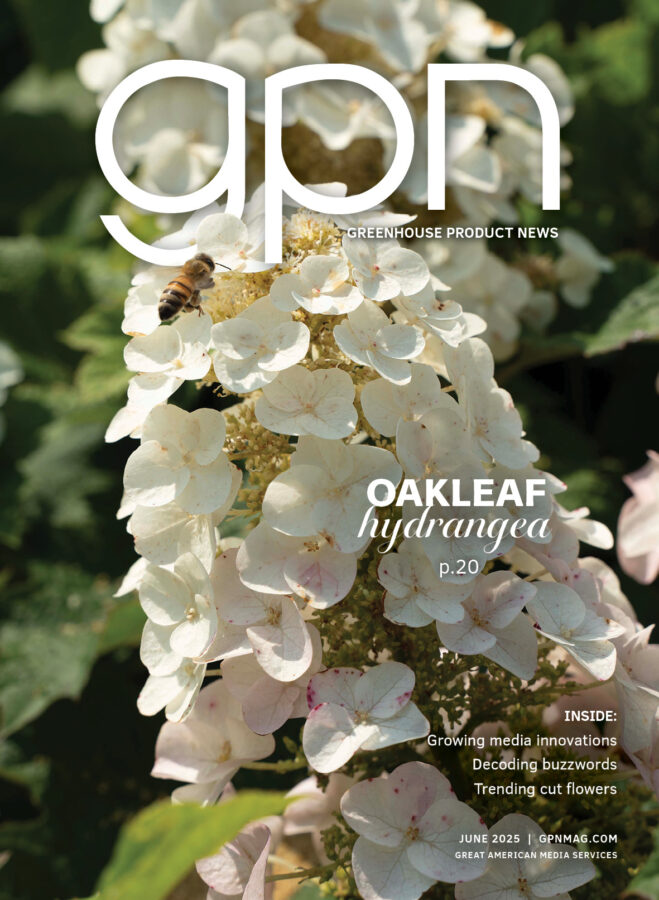
What the Research Says About Millennials and Houseplants
The words “millennial” and “houseplant” have been used in conjunction for the past few years in the horticulture industry. Millennials are defined as U.S. consumers ages 26 to 42. Generation Y (colloquially called millennials) is currently settling into their adult lifestyles. These 26- to 42-years-old are facing lots of firsts: their first home, first job and first independent income. In fact, in 2020, nearly 40% of first-time homebuyers were older millennials (34-42 years old).

Generation Y is trying to find the right balance between spending for necessities and for entertainment. This generation is concerned not just with function and utility, but also with style. They are more ethnic than previous generations, where 15% of today’s 20- to 34-year-olds were foreign-born and 21% of young adults are Hispanic. They should not be ignored. Millennials’ current buying power equates to $200 billion, with indirect spending reaching $500 billion. Their incomes are expected to increase as they age and move more into the permanent workforce.
Yet millennials specifically have an average income lower than the average of the generations before them, have high student debt from education and were hit hard by the recession. This adds up to lower purchasing power and cost-conscious decisions. They are getting married later in life and becoming parents at older ages than their own parents.
While many have begun to purchase their own homes and start their own families, the average millennial is less financially secure than his/her Baby Boomer parents were at a similar point in their lifecycle. This, along with the scarcity of affordable housing, means that millennials very likely will remain renters longer than previous generations. The share of young adults living with their parents has risen from 30 to 36% in 1981 to 58% in 2021. This may not be a change in preferences but more likely a reflection of realities.
In the fastest-growing urban areas, renters are typically apartment dwellers with little or no access to outdoor gardening spaces. As such, many have turned to indoor or patio gardening. There is reason to believe that when the economic environment improves, a certain amount of postponed demand could be unleashed.
But there is also strong evidence to suggest that unemployment during their early career years will have a negative impact on earnings prospects in the long term. Income lost during a recession and its aftermath could lead to permanently lower incomes for those affected. Additionally, attitudes shaped by economic circumstances during youth tend to stick with a person. Millennials and Generation Z consumers are more likely to trust community groups online than companies selling a product or service.
What the Research Says
As part of an effort to understand consumers wants and desires more related to houseplants, a few colleagues (Hayk Khachatryan from the University of Florida and Charlie Hall from Texas A&M University) and I went about to find these answers by coordinating a research grant with American Floral Endowment, Altman Plants, Costa Farms, Green Circle Growers, Hortica and Metrolina Greenhouses.
What we found is that millennials continue to be rather unique in their attitudes and behaviors. Although they have similar quantities of houseplants to other generations, they purchase houseplants more frequently than Baby Boomers, Generation X and Generation Z. Millennial indoor gardeners have tended to focus on plants that offer health or wellness benefits. As a result, indoor plants are set to see further positive retail value growth over the forecast period as consumers continue to embrace indoor gardening.
Their concerns for the environment will also play a role in continued plant purchasing. As a result of this driving force in behavior for millennials, we asked the study participants questions regarding their optimism for the future and mental health status. We found that purchasers were more likely to be more positive than non-purchasers and millennials were more likely to be optimistic for the future and have a more positive emotional status than the other generations.
What is very positive for our industry is that 93% of millennials believe houseplants make them happier. Although the average rating for all of the participants was that they agreed houseplants do make them happy, millennials strongly agreed with this statement. When asked if they will continue their hobbies post-COVID-19, 75% of millennials said that they will continue their hobbies at the same level as during the pandemic.
When looking at online engagement, millennials and Generation Z are more likely to follow a houseplant retailer, grower, or organization (associations and societies, for example) than Generation X and Baby Boomers. But the younger the consumer, the more likely they are to follow these firms. Additionally, they are much more likely to purchase from these businesses after viewing their social media. This means that online interaction with consumers ages 18 to 40 are critical. Posting the business’s comings-and-goings and engaging with your consumers online relates to building trust, especially with millennials.









 Video Library
Video Library 


















